




 |
   |
 |
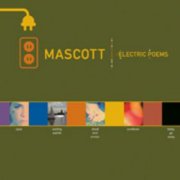 |
Electric Poems (1998, 15.07) ***/TEyesWaiting Awhile Dead End Romeo Sundown Baby, Go Away |
Current availability:
Mellotron used:
Mascott appears to be singer-songwriter Kendall Jane Meade's nom de plume, although she recruits several sidemen on her first release, 1998's Electric Poems EP. Musically, it's pretty much 'girl writes songs in bedroom, gets her band to play them' territory, but I've heard considerably worse, given her chosen field's usual restraints. Best song? Possibly opener Eyes, although it's all pretty much of a muchness, to be honest.
Although I've seen bassist John Gold listed as the Mellotron player, it seems it's actually Lee Mazzola who adds a nice (and pleasingly real-sounding) flute part to Dead End Romeo. Meade put out three full-lengthers under the Mascott name over the following few years, but given that nothing new's appeared in nearly a decade at the time of writing, we can probably assume that the project's been put to bed.
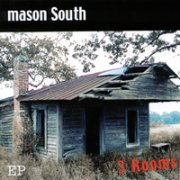 |
3 Rooms (2003, 30.50) ***/½3 RoomsMiss Sippy Have Your Own Way Room With a View '49 Ford Menthol Cigarette |
Current availability:
Mellotron used:
Mason South consist(ed) of a clutch of LA musos, all with considerable form, having, between them, played with Stephen Stills, Southside Johnny, Rita Coolidge, Joe Walsh and Rod Stewart, amongst many others. Their debut release, 2003's 3 Rooms mini-album (have they recorded anything else?), is a decent enough, largely Americana record, the exception being the funky blues of Room With A View, possibly at its best on '49 Ford.
Phil Parlapiano plays his M400, with the occasional cello and string note on Miss Sippy, making this an exceedingly minor Mellotron album indeed, albeit one that's good at what it does.
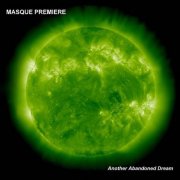 |
Another Abandoned Dream (1981, 45.57) ***½/½War CryTear for the Red Man Another Abandoned Dream Progressive Assertion The Gift |
Current availability:
Mellotron used:
Ohio's Masque Premiere released their sole album, Another Abandoned Dream, in late 1981. It's a late-in-the-day progressive effort, relying rather too heavily on over-amped guitar and ARP String Ensemble, a.k.a. the Solina; a wonderful sound, but something (rather like the Mellotron) which should be utilised judiciously. As with many progressive albums, it's difficult to pick out highlights, as the material relies as much on arrangement as actual composition, but Progressive Assertion and The Gift may just have the edge.
Guitar/keys man Forrest York's credited with Mellotron (not to mention pedal-controlled Solina, in a Rush-like pre-MIDI kind of way), but all we get is a tiny burst of background choirs towards the end of the title track. Guys, since you had access to one, why didn't you use it more? Maybe replace some of those damn' Solina parts with it? A solid prog album, then, if nothing startling, but a Mellotron non-starter.
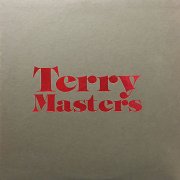 |
Thesaurus (197?, 35.31) ***½/TTTThesaurus IThesaurus II |
Current availability:
Mellotron used:
Going by the research done by the lovely people at psychedelicbabymag.com, Minneapolite Terry Masters (d. 2018) was, essentially, a nightclub crooner type, who released one single under the name Terry Masters at the Organ. Stop laughing. However... He also released the deeply obscure Thesaurus at an unknown point in the '70s, an all-instrumental psych/prog album (so probably early in the decade), Masters playing bass, organ and Mellotron, the whole driven by John Calder's amphetamine-fuelled drumming. OK, so his compositional chops weren't all that, but for sheer atmosphere, not to mention manic energy, this is difficult to fault. As you can see, two (shortish) side-long pieces, both sounding semi-improvised, with sections of organ/drum jamming, although much of it is clearly composed. Highlights? The point around three minutes into side two where the bass and organ begin climbing the scale, while the Mellotron drops, in a counterpoint kind of way.
Masters plays Mellotron, with strings and cellos wandering in and out of the mix throughout both sides, but not, to my surprise, overused, given how little instrumental variety he had to hand. Is this a lost Mellotron classic? Borderline, I'd say, compared to the era's greats, but worth hearing if you can actually track a copy down.
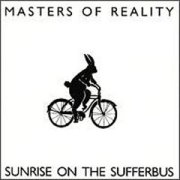 |
Sunrise on the Sufferbus (1992, 42.38) ***½/T½ |
|
| She Got Me (When She Got Her Dress on) J.B. Witchdance Jody Sings Rolling Green Ants in the Kitchen V.H.V. Bicycle 100 Years (of Tears on the Wind) |
T.U.S.A. Tilt-a-Whirl Rabbit One Madonna Gimme Water The Moon in Your Pocket |
|
Current availability:
Mellotron used:
The cheekily-named Masters of Reality lurched into view in the late '80s with their debut, Masters of Reality (a.k.a. The Blue Garden, ***½), a total anachronism at the height of heinous hair-metal and all the better for it. Surprisingly, they were critically well-received, making it all the more strange that it took them four years to follow-up with Sunrise on the Sufferbus, featuring the inimitable Ginger Baker on drums. In fact, if they hadn't been signed to Rick Rubin's estimable Def American label, they probably wouldn't even have got a first chance, never mind a second, so hats off to the man with the beard.
Sunrise on the Sufferbus is a bit of a mixed bag, but includes some great material, although Baker's T.U.S.A. is this album's Pressed Rat And Warthog, a monologue telling Americans how to make a cup of tea (!), isn't honestly among them. Opener She Got Me (When She Got Her Dress On) rocks nicely, as does V.H.V. and much of the rest of the record. Mainman Chris Goss gets a 'keyboard' credit, so I think we can assume it's him playing what sounds like real Mellotron strings on 100 Years (Of Tears On The Wind), with more of the same on Tilt-A-Whirl. Actually, Mellotron samples weren't widely used until later in the decade and it's rough enough round the edges to be genuine, so hats off again.
See: Samples etc.
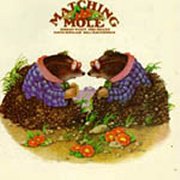 |
Matching Mole (1972, 40.04/125.38) ****/TTT (TTT½) |
||
| O Caroline Instant Pussy Signed Curtain Part of the Dance Instant Kitten Dedicated to Hugh, But You Weren't Listening Beer as in Braindeer |
Immediate Curtain [Deluxe ed. adds: O Caroline (single version) Signed Curtain (single edit) Part of the Dance Jam Signed Curtain (take two) Memories Membrane Part of the Dance (take one) |
Horse Immediate Kitten [BBC] Marchides/Instant Pussy/Smoke Signal [BBC]] |
|
Current availability:
Mellotron used:
Matching Mole were a Soft Machine offshoot, named as a bastardisation of machine molle, French for 'Soft Machine'. Pretentious? Nous?! They fitted perfectly into the 'Canterbury Scene', such as it was; whimsical, jazzy progressive rock with a rather juvenile sense of humour (see: related artists Hatfield & the North). Matching Mole were, I believe, Robert Wyatt's last pre-accident band, singing and drumming; while the style is definitely an acquired taste, Matching Mole is a fine record. Opener O Caroline is a beautiful, strangely affecting ballad, albeit one with a couple of quirks, Signed Curtain a slightly less effective version of the same approach, while the bulk of the remainder consists of furious fusion workouts, the exception being stark closer Immediate Curtain.
As far as the Mellotron's concerned, Wyatt (for I believe it was he) switches between flutes and cellos on the whimsical O Caroline, then goes for a deranged solo flute part on Instant Kitten, before drenching Immediate Curtain in strings. Esoteric's two-disc version adds several more lengthy fusion workouts, for better or worse, the highlight being Signed Curtain (Take Two), loaded with Mellotron flutes and strings in fine style. This is full-on stuff; I hadn't realised quite how much upfront Mellotron work there was on the album, leading me to say... Buy.
See: Robert Wyatt | Hatfield & the North
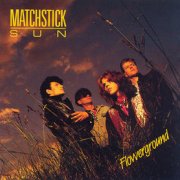 |
Flowerground (1989, 48.49) ***/½ |
|
| It's Just a Matter We Seem to Vanish Matchstick Sun Edison Train Flowerground Too Many Girls You and Me Waiting for the Wrong |
Jenny Jones Funny Odd Men Mighty Head of Fools |
|
Current availability:
Mellotron used:
Although seemingly thought of as merely 'pop', Norwegians Matchstick Sun were, at least on their 1989 debut, Flowerground, a pretty decent '60s-influenced powerpop outfit, albeit one with some unfortunate '80s tendencies. Well, it was the unfortunate '80s... Album highlights include opener It's Just A Matter, their 'theme tune', Matchstick Sun, Waiting For The Wrong and the interesting key-changes (despite the slightly over-enthusiastic vocals) in closer Mighty Head Of Fools, although the title track's attempt at synthesized '80s jazz and the awkward rock'n'roll of Too Many Girls could have been lost somewhere along the way.
Ivar Chr. Eidem plays Mellotron, an occasional string line wafting around in the background on Edison Train, alongside real strings, although that would appear to be your lot. Do you bother? More to the point, how do you get to hear it anyway? Die-hard psych revivalists may wish to track this down once all the more obvious titles have been sourced, but you're certainly not going to bother for the Mellotron.
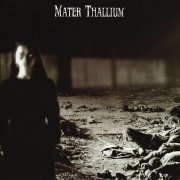 |
Mater Thallium (2013, 43.12) ***/TMycobacteriumAnhedonia She Killed All of Them Tumour of Dysphoria Your Dying Day Emily is Dead Life Before Death |
Current availability:
Mellotron used:
Although sometimes labelled 'prog', all that shows is how the term's use has changed over the years, as Trondheim's Mater Thallium are classic, old-school doom, albeit at the lighter end of that spectrum. Mater Thallium is possibly at its best on the brief, beautiful Your Dying Day, pretty much everything else being just a tad too silly to really take seriously. Given that two of the band are ex-members of 'burlesque proggers' The Procosmian Fannyfiddlers, should this be approached as some kind of ironic art project?
Rhys Marsh plays Mellotron, although many of the album's parts sound well dodgy to my ears, not least the choirs on opener Mycobacterium and strings on Anhedonia. It sounds like genuine strings on Tumour Of Dysphoria and Emily Is Dead, though, so this can stay here until/if I should find otherwise.
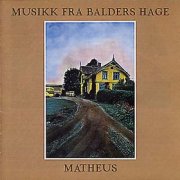 |
Musikk Fra Balders Hage (1974, 38.27) ***/T |
|
| Lys Ørnevisa Tomme Ord Med Mening Mislikerne Crazy Shop Kom Nærmere Si So Mormor Sa Isak |
Frustrerte Ettermæle Til Min Prinsesse Alle Som Har Z Så Langt Borte (Som du Er) |
|
Current availability:
Mellotron used:
Like so many similar artists, I can't tell you very much about Norway's Matheus, although, going by 1974's Musikk Fra Balders Hage, they were a folky outfit with progressive touches, like many others at the time. The album's highlight is quite clearly opener Lys, a gorgeous folk/prog cross, a little like contemporaneous Strawbs, better other tracks including Kom Nærmere and balladic closer Så Langt Borte (Som Du Er).
Ulf Klemp plays beautiful Mellotron flute and string parts on opener Lys, enhancing what was already the album's best track. Although this appeared on CD in the '90s, it's most likely now out of print; perhaps some kind soul has uploaded it to YouTube?
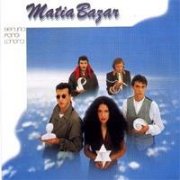 |
...Berlino ...Parigi ...Londra (1982, 42.21) **½/T½ |
|
| Lili Marleen Io Ti Voglio Adesso Passa la Voglia (Look at the Rain Fall) Che Canzone è Fortuna Fantasia Stella Polare Zeta |
Fuori Orario Astra |
|
 |
Tango (1983, 35.50) ***/TVacanze RomanePalestina Elettrochoc Intellighenzia Il Video Sono Io Scacco un Po' Matto Tango Nel Fango I Bambini di Poi |
Current availability:
Mellotrons used:
Matia Bazar seem to be a fairly typical Italian pop group, representing their country in Eurovision in 1979, although I suspect they've got a few prog skeletons residing in the back of their collective cupboards. 1982's ...Berlino ...Parigi ...Londra (was that wishful thinking?) is mostly pretty crummy; Antonella Ruggiero's vocals display a Kate Bush influence in places, but that isn't enough to rescue this collection of mainstream pop nonsense. In fairness, the album has its occasional better moments; the odd chord sequence veers away from the norm and the vaguely rocking Fuori Orario could be worse, but by far and away the best things here are Mauro Sabbione's short piano solo, Zeta, displaying his classical/prog chops for all to hear and lengthyish closer Astra, a six-minute instrumental prog effort, hidden away at the end so as not to offend their fanbase. Sabbione plays Mellotron choir, with a distant part on opener Lili Marleen, more obvious swells on Io Ti Voglio Adesso, a handful of chords on Fantasia and a more 'standard' part on Astra.
The following year's Tango is more self-consciously new wave/synthpop and, as a result, marginally better than its predecessor, better tracks including the new wave-ish Palestina, Elettrochoc and Scacco Un Po' Matto. Sabbione on Mellotron again, with chordal choirs on Palestina, Elettrochoc and closer I Bambini Di Poi, none of it to any great effect.
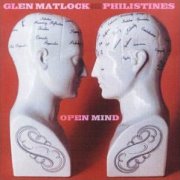 |
Open Mind (2000, 44.22) ***/TTT |
|
| Open Mind Regular Ray of Sunshine Ducking and Diving Sound of Swinging London Idiot Ambition Gimme Gimme Gimme Sad Meal for One |
Mugs Game Speed of Sound Catatonic Rattle Your Cage |
|
Current availability:
Mellotron used:
 |
I listened to the whole of (S)ex Pistol Glen Matlock's Open Mind under the impression it was a Mike Scott album, due to a mix-up on a long drive, not realising my mistake until halfway through Scott's album, thinking it was Matlock. The confusion is understandable, as both records are largely mid-paced dad-rock, concentrating on 'the song', as against the sound, which isn't, to be honest, wildly exciting. Lyrically, the album references London a good deal and you get the feeling the music's mainly there as a vehicle for the lyrics, although, sadly, Matlock lacks the observational nous or the biting wit of a Richard Thompson or an Elvis Costello.
Surprisingly, Matlock plays Mellotron on most of the album's tracks, with several booklet pics of an M400 (right), just in case you weren't sure. To be honest, it's not the most exciting use you'll ever hear, vaguely orchestral strings apparent on all highlighted titles above, but it's nice to hear a real one used at all these days, so that's enough carping. An OK if rather unexciting album, then, albeit one with halfway decent lyrics. OK Mellotron, too, although also not the most jaw-dropping use you'll ever hear. Given that Matlock was the compositional brains behind the Pistols' best songs, this is a little disappointing, although I fully accept that he's moved on and rightly so. One for Pistols completists who can't afford an A&M God Save The Queen.
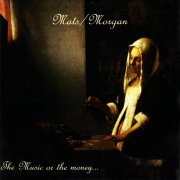 |
The Music or the Money... [Disc 1] (1997, 48.41) ***/T½ |
|
| If I Only Had a Clavinet Coco I Wanna Spinning Around Daisy If I Only Had a Pianet Sylox Hjortron Från Mars |
Advokaten le Messian Baader Puff l Grand Open ll Landby lll Simon |
|
Current availability:
Mellotron used:
Mats Öberg (keys) and Morgan Ågren (drums) were adolescent prodigies, first collaborating in their early teens, putting their own unique twist onto Frank Zappa material before being spotted by the man himself, quickly progressing from guesting at a Swedish gig to Ågren actually playing with him in the States. The duo released their first album together, Trends & Other Diseases, in 1996, following it a year later with the suitably Zappaesque-titled The Music or the Money..., a partially improvised two-disc set split into Disc Mats and Disc Morgan, each member presumably taking the lead on their own disc. Disc Mats is the more cohesive (i.e. arranged) and is my personal preference, Disc Morgan having its moments, although far too much of it can be essentially described as manic drumming set to post-techno synths and dweeby samples. Nope, gimme Mats' disc, thanks.
Öberg plays clearly real Mellotron (whose?) on his own disc, with polyphonic flute parts on Coco, Spinning Around and Hjortron Från Mars. Y'know, this would've gained an extra half star and a higher T rating had I pretended I hadn't also listened to disc two; Morgan has every right to inflict his mad, techno-jazz vision upon us, but I also have the right not to like it very much. Cuneiform reissued the album in 2010 credited to the Mats/Morgan Band with an extra forty-five minutes of music, although, given that the extras apparently feature 'their current band', I rather doubt whether there'll be any more Mellotron. Anyway, get hold of this and listen to disc one.
 |
Golden State (2008, 43.45) ***/T½ |
|
| Baby Cayce Got You Baby Bleeding My Heart Flying Solo Best Friend To Call My Own Hey You Won't Find Nothing Like You |
You Follow Yours What People Say (I Don't Care) Could the Good Lord Ines' Lullaby |
|
Current availability:
Mellotron used:
Texan Mario Matteoli's Golden State sits somewhere in between the singer-songwriter and Americana areas, sliding between the two as his songs demand. Highlights? The electric Got You Baby, Won't Find Nothing Like You and closer Ines' Lullaby, maybe.
Matt Hubbard plays what have to be genuine Mellotron flutes on Flying Solo and What People Say (I Don't Care), both high in the mix. Both songs feature moments where Hubbard plays faster than you might think reasonable, but a well set-up machine should be able to cope with such things. Real, I say.
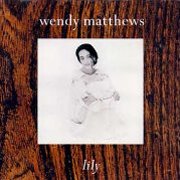 |
Lily (1992, 52.23) *½/TT |
|
| Friday's Child Walk Away T.K.O. Mother Can't Do Quiet Art The Day You Went Away If Only I Could |
Homecoming Song By Suzannah Castaway Face of Appalachia Naming Names Inexorably Yours |
|
Current availability:
Chamberlin used:
Although Canadian-born and raised, Wendy Matthews is usually regarded as Australian, having spent most of her career based in that country. Lily was her second solo album and, although it pains me to say it, it's a pile of shite. This is the sort of bland rubbish that clogs up your musical arteries and kills off your taste, leaving you a hollow, dried husk of a former music-lover. Or something. This is spectacularly horrible, despite the presence on the album of a Chamberlin.
Speaking of which, it's played by Matthews herself, Robert James and producer T Bone Burnett, with strings on opener Friday's Child, a complex flute part on Homecoming Song By Suzannah Castaway, a simpler one on Naming Names and what sounds like flutes and cellos on Inexorably Yours. Despite the horrors of the album's music, Homecoming Song is actually one of the more inventive tape-replay parts I've heard for a while, although it's rather overshadowed by its utterly insipid setting. So; some interesting Chamby work, but appalling music. If I hadn't, I wouldn't.
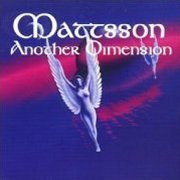 |
Another Dimension (2000, 69.27) **½/T |
|
| Hell Crash and Burn Don't Chain My Mind Angel Blue Burn the Witch Burning My Soul Don't Lose Your Patience Another Dimension |
Road of Babylon In Both Ends Save Our Souls Memory Lane Wait for the Angels Cry No More |
|
Current availability:
Mellotron used:
(Lars Eric) Mattsson, was discovered by Shrapnel Records' Mike Varney in the mid-'80s, which should give you a pretty good idea of his style. Yup, it's 'neo-classical' metal, although I struggle to see in exactly what way this is 'classical'; all I can hear is sub-Rainbow moves, without an ounce of Blackmore's wit or talent. The ability to sweep-pick at 5000 m.p.h. doth not an interesting record make. Another Dimension is Mattsson's first album under his surname alone, after five credited to his full name and a handful with various bands. It's the expected sub-Rainbow/Yngwie J. Malmsteen (himself deeply sub-Blackmore) stuff; think: slightly more adventurous heavy end of AOR with slightly symphonic keyboards and adept, if clichéd guitar work. Fascinating. Even Ella Grussner's violin on Angel Blue can't drag this wildly overlong album up from the doldrums, I'm afraid.
Pär Lindh plays piano, Hammond and Mellotron, so at least we know it's real, for once. He's only credited on one track, but it's quite clearly Mellotron flutes on Angel Blue, unless that's Mattsson. Eric Norlander also guests on keys, but only the synth solo on Don't Chain My Mind, by the looks of it. The strings on Don't Lose Your Patience have a Mellotronlike feel to them, but are more likely to be generic, ditto the choirs in the title track and Memory Lane, leaving the heavily reverbed choirs in Save Our Souls as the album's other Mellotronic contribution. Lars Eric Mattsson isn't a man to straddle genres or to go boundary-breaking. He's a neo-classical widdler and proud of it. As a result, it's dead easy to decide whether or not you're likely to find Another Dimension listenable: do you like neo-classical metal? It's as simple as that. Maybe if I'd been thirteen when this stuff came along, rather than being a grown-up, I would, too. I'm thankful I wasn't.
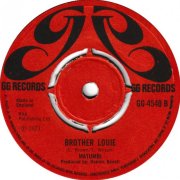 |
7" ( 1973) ***/TT Brother Louie Brother Louie (instrumental) |
Current availability:
Mellotron used:
Although now seemingly only really remembered by the faithful, Matumbi were one of Britain's top reggae bands of the '70s, actually going down better than The Wailers at a concert in 1973, to their embarrassment. Although their first album didn't appear until 1978, they'd been releasing singles for several years by that point, the first (possibly) being Brother Louie. Falling somewhere between The Wailers' rebel-rousing and Dandy Livingstone or Johnny Nash's pop-reggae, it's a decent enough effort, deserving to do better than it did on its original release.
Organist Nick Straker played MkII Mellotron strings on both sides of the single (the 'instrumental' version on the flip is actually the vocalists toasting over the backing track), with a nice, memorable part that should've helped to sell the record. The A-side's available on Trojan's Music in the Air: Anthology, but if you want to hear the flip as well, you'll have to track down a second-hand copy of Trojan's 1977 compilation, The Best of Matumbi. n.b. A chance discovery on the 'Net tells me that the Mellotron was none other than Brian Jones' MkII (Jones had died a few years earlier), by then residing in the semi-legendary R.G. Jones Studio in south London.
 |
Mausoleum Gate (2014, 40.16) ***½/TTMagic of the Gypsy QueenDemon Droid Lost Beyond the Sun Mercenaries of Steel There Must Be Demons Mausoleum Gate |
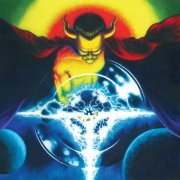 |
Into a Dark Divinty (2017, 41.19) ****/TTT½Condemned to DarknessBurn the Witches at Dawn Apophis Solomon's Key Horns Into a Dark Divinity |
 |
7" (2019) ***½/TT The Demon Age of Aquarius Before the Snake Sneaked in |
Current availability:
Mellotrons used:
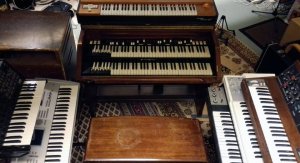 |
Finland's Mausoleum Gate play full-on trad, old school, NWoBHM-influenced metal with progressive overtones. Think: Angel Witch/Warlord/Virgin Steele crossed with Uriah Heep and Deep Purple. Their eponymous 2014 debut shifts between the more basic end of the genre (opener Magic Of The Gypsy Queen, There Must Be Demons) and proggier stuff like the nine-minute Lost Beyond The Sun and the even longer closing title track. Mercenaries Of Steel also throws in a hint of Purple's jamming side, as the track devolves into organ noodling, giving the impression that, if they so wished, they could stretch it out on stage for as long as they liked. I'll be honest; some of the riffery's far too 'by numbers' for my taste, but the longer tracks all work well.
These days, how many artists go the extra mile by crediting 'Hammond C3, Mellotron M400 and MiniMoog Model D'? Bassist Thomas "Wicked" Ischanius does, but it's that 'C3' credit that lets you know it's for real, as almost everyone trying to claim genuine Hammond use credits 'B3', rather than the identical-but-for-its-cabinet C, more common in Europe (see pic, right). The M400 turns up on three tracks, with choirs under (sampled?) church organ at the beginning of the record, a major string part on Lost Beyond The Sun, plus choirs towards the end of the piece, with more of the same on the lengthy title track. Splendid! This is about as far from modern progressive metal as you can get, while still playing, er, progressive metal, which has to be a good thing. Ischanius has switched to full-time, mostly vintage 'boards now, so here's hoping I get to see 'em live at some point.
2017's Into a Dark Divinty displays a considerable progression for the band, a more structured progressive hard rock now their default setting, clearly influenced by the best Scandinavian bands of the preceding two decades. Burn The Witches At Dawn is the album's one throwback to their debut, their new style heard to its best advantage on the album's three longest tracks, Condemned To Darkness, Apophis and the closing title track, peaking on the last-named. Ischanius assures me that he played his M400 on four tracks here, with flutes, 8-voice and male/female split choirs and strings on Condemned To Darkness, church organ, strings, mixed and male voice choirs on Apophis, flutes on Solomon's Key and strings and split choirs on the title track. This is heartily recommended to all lovers of 'trad' prog with a hard rock feel. More please, gentlemen.
2019's vinyl/Bandcamp-only single, The Demon Age Of Aquarius, is more of a straightforward trad hard rock number, introducing the band's new vocalist, while the flip (which kicks off as if it's going to channel Zeppelin's Good Times, Bad Times) is their previous vocaliser's final outing for the band. Mellotronically speaking, it's only to be heard on the 'A', with strings fading in and out of the mix in pleasing fashion.
See: Iron Griffin
 |
Stray Apparitions From the Mauve Sideshow (1991, 41.57) ***½/TTTBeneath the RoseStray Apparitions Lost |
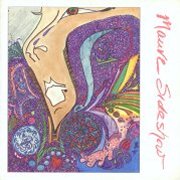 |
Mauve Sideshow (1993, 46.19) ***½/TTT½Golden SandBeneath the Rose Barricades Jet Girl Talks in Her Sleep Hide in the Rain Stray Apparitions |
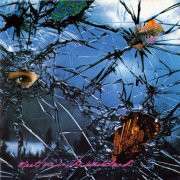 |
Meet Me in the Wasteland (1993, 48.07) ***/TTPreludeStranger's Face The Shimmering Burial at Sea The Black Chain, The Wasteland Tsunami |
 |
The Girl (1994, 46.45) ***/TThe PathRestrictions The Other Girls Dream Obsession, She Said Precocious Desire The Catacombs |
 |
Blood Will Tell (1996, 41.40) ***/T½DustThe Crescents Crumbling Stairs Smokescreen Midnight Revelations Lost Thought The Chill |
Current availability:
Mellotrons used:
Mauve Sideshow are one of the earliest incarnations of a linked series of Seattle-based 'darkwave' outfits, including Mistress of Strands, Torn Curtain, Angel Provocateur, Minus Infinity and Thistle, most of whom used Mellotron at one point or another. It seems they all highlight different aspects of their gothic inclinations, one being more electronic, one more ambient, one more atonal, etc. Most of the disparate outfits are essentially the husband-and-wife team of Lee "Dusty Lee" Blair (Mellotron, electronics) and Treva Dea (vocals, electronics), although one Kelly Thistle appears on some releases.
Their first two releases were vinyl-only, 1990's Dark Flowers and Stray Apparitions From the Mauve Sideshow from the following year. The mere half-hour Dark Flowers consists of atonal-yet-ethereal soundscapes, for want of a better term, mostly wordless female vocals and muttered threats drifting in and out of the mix, alongside echoed synths and other unidentifiable sounds. However, I'm pretty sure there's no Mellotron on the album, despite thinking I heard some flutes on opener Golden Sand, reiterated on their eponymous compilation, below. Stray Apparitions From the Mauve Sideshow is a full-length LP featuring all of three tracks (hey, it's prog! OK, it isn't). More atonal madness, unsurprisingly, just in longer form here, just about the only thing distinguishing it from its predecessor being its Mellotron use. Lee adds cellos and strings to Beneath The Rose, while Stray Apparitions is the album's Mellotron classic; cellos, flutes and strings all duel for the first couple of minutes of the piece, various sounds (including choirs) dipping in and out over the succeeding ten minutes, although the near-twenty minute Lost has to be the most challenging track on the album, but then we all like a nice challenge, don't we? DON'T WE??!
1993's Mauve Sideshow is a compilation of tracks from the above two LPs, with one new piece. The compilation's probably best described as 'very weird shit indeed'; Mauve Sideshow are most certainly the 'atonal' part of the collective's oeuvre; unless you're well into avant-garde oddness, you'll find this very hard going indeed. Lee's Mellotron appears on the two tracks from Stray Apparitions, with strings on Hide In The Rain, the one track unique to this compilation.
Unsurprisingly, 1993's Meet Me in the Wasteland is no less weird than its predecessors, at its oddest on The Shimmering, seven minutes of treated vocalisations, possibly fed through a delay with a super-high repeat rate and thirteen-minute closer Tsunami. Lee plays Mellotron on several tracks, with drifting strings on opener Prelude, Stranger's Face and Burial At Sea, plus cellos, church bell FX and flutes on the ten-minute The Black Chain, The Wasteland. The following year's The Girl concentrates more on the vocal side of the duo, its Mellotron content limited to the warbly strings on The Other Girls Dream [sic.] that drift in and out of the mix. '96's Blood Will Tell carries on in a similar vein, albeit slightly more percussively, with two Mellotron tracks: pitchbent strings on opener Dust and occasional volume-pedalled ones on the lengthy Midnight.
See: Angel Provocateur | Kangaroo Kourt | Steeple of Fyre | Torn Curtain
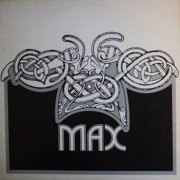 |
Max (1974) **½/½StephanieRolling Up Cell Block E Shapes and Spaces Witch Woman Troublemaker Dance of Death All I Know |
Current availability:
Mellotron used:
It seems highly likely that the Max Handley (1945-1990) who released his sole solo album, Max, in 1974, is the same Max Handley who was involved with the iconoclastic International Times in the late '60s and wrote three strnage novels, one of them SF, during the following decade. The album's one of those mid-'70s 'rock' efforts that falls between the cracks, due to its lack of any definable direction and its refusal to fit into any of the genres subsequently imposed upon its era. Saying that, it's not an especially interesting record, probably made while its chief protagonist was completely off his tits on the finest Moroccan money could buy (see: Rolling Up), although the talking blues of Troublemaker raises a smile. Handley's careworn blues voice is the album's strong point, but both the material and the overall sound have dated badly, leaving the kind of album that seems unlikely to receive a CD reissue any time soon, or indeed, ever.
Drummer Chili Charles plays Mellotron on acoustic ballad Cell Block E, with a cello part that could easily pass for a real one were it not credited. You're unlikely to find this easily or cheaply, although I stumbled across a copy in a charity shop for a quid (it happens), only missing its lyric sheet. To be frank, it's not worth splashing out all that much for, although if you get a chance to hear it, it's an occasionally interesting curio, albeit with very little Mellotron.